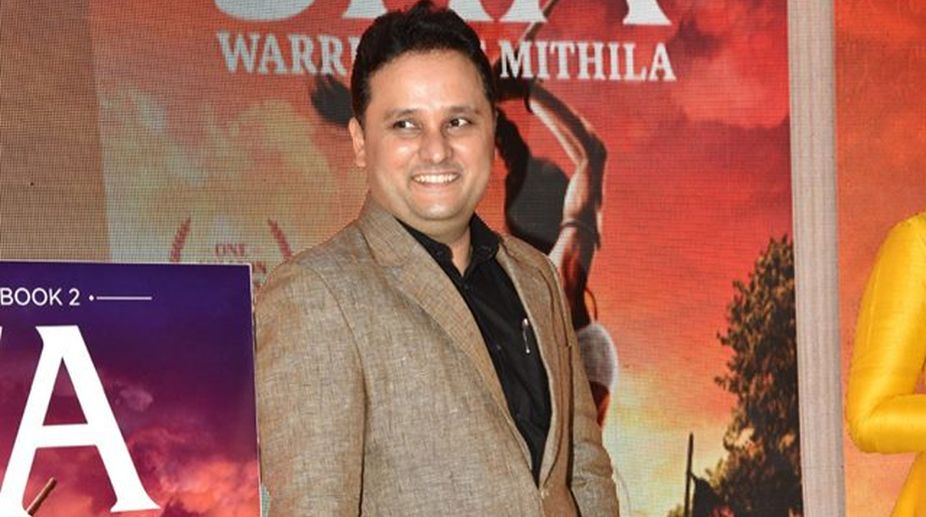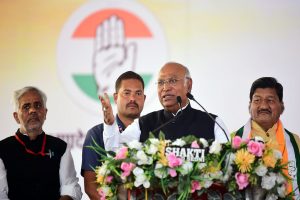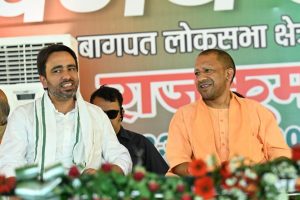Known for his contemporary take on mythology and fascinating portrayal of highly-revered divine characters, Amish Tripathi is one of the most-liked writers in today’s time. His mythological fictions appeal to audiences of all age groups.
In an exclusive interaction, he spoke about his journey, his love for the mythological genre, ancient India and much more.
Excerpts:
You are one of the most popularfiction writers in India.What do you think is the reason behind such massive popularity?
I just write what comes to me and my stories appeal to the current generation more as they live in a modern world and want to hear modern messages. My books perhaps caught that mood and I’m by nature a liberal person and a proud Indian, and that very well reflects in my book. That’s my theory and I think that’s what works. People generally don’t like to hear conservative messages but my stories convey traditional messages in a modern way and I think that’s what works.
Do you think people in ancient India were more modern than us?
Yes, certainly. Also, I’ve said this repeatedly that one of the misfortunes of our country has been that our liberals have not realised that our ancient culture is actually the biggest ally of liberalism. Many of them know nothing about our ancient culture as they haven’t read them. Most of them can’t even name four Vedas let alone knowing what’s written in it.
How much time do you spend researching and preparing for your novels?
Anything that I am doing when I am not writing is research. I read a lot. I read minimum five to six books in a month and I’ve been reading at that pace for decades. My rule of ratio is that for every single page you write you should read 100 pages and only then each page becomes rich with detail. I read because I love reading and not necessarily for writing a book.
How did you develop interest in writing mythological books, given that it is one of the most contentious genres? Doyou ever get anxious about getting into controversies?
Our society is actually among the most liberal in the world in terms of freedom of expression and acceptance of different point of views but our laws are not liberal though. My books have different interpretations but I have never been into any controversy nor do I worry about that as I write with respect. My intentions are very clear.
How much of your imagination do you use in your writings?
A lot of my writing has often interpretations of versions of the texts you may not have heard of or read about and of course a bit of it is my imagination as well. For instance, showing Sita as a warrior may be surprising for those who have only seen 1980s televised version or have read Ramcharitmanas. But it’s not surprising for those who have read the Gond Ramayani or Adbhuta Ramayan because there she was a warrior. Even in the original Valmiki Ramayana, although she isn’t a warrior but she is a very tough woman. I take inspiration from different versions and use my imagination too.
What do you have to say about the religious fanaticism that’s on the rise in the current times?
The antidote to the religious fanaticism, in India, is certainly the knowledge of our scriptures. People should read them. Do you know in Vedic Sanskrit there is no translation for the English word blasphemy as there wasn’t any such concept? You could question anyone, including God. Even in Mahabharata, it’s written that Gandhari cursed lord Krishna and God had to accept it as her swadharma was strong.
What do you have to say about abhorrence for homosexuality in our country and section 377?
‘Purush napunsak naari va jeeva charachar koi, sarva bhava bhaja kapata taji mohi param priya soi’. Any man, any transgender, any woman, any living being, as long as they give up deceit and come to me with love for all, they are dearest to me. These lines were said by Lord Ram in the Ramcharitmanas. He did not differentiate between man, woman or transgender. Why should we? We have always had a very liberal attitude towards LGBTs and there are other examples in the Mahabharata too.
What is patriotism to you?
I come from a very humble background and I have immense love for this land. I am a proud Indian but I think patriotism means you question things that deserve questioning. This is about positive patriotism. Quite interestingly, you have quit your 14yearsof career in financial services to focus on writing.
What made you take that plunge unhesitatingly? I left my career in financial services to focus on writing only when my royalty cheque became more than my salary. It was a pragmatic thing to do. I would also advise budding writers to let their heart pick the destination but use their mind to plot the journey. Be practical, stay focused, and write with utmost honesty. There is clearly no shortcut to success and no substitute for hard work.











